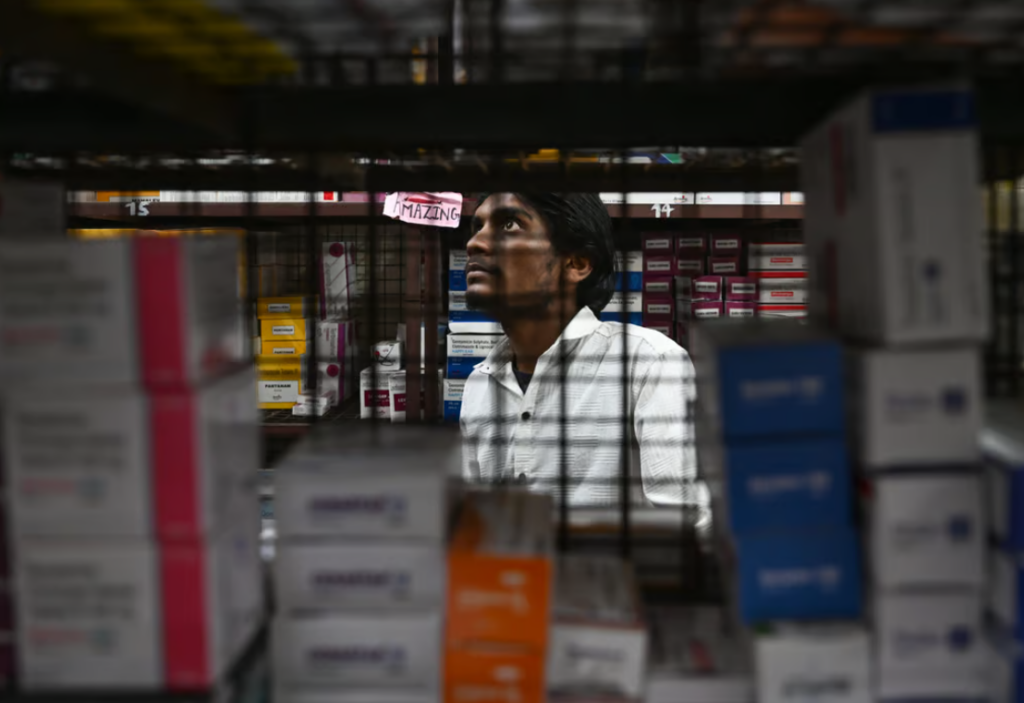- Trump’s proposed drug tariffs could hit generics the hardest and worsen ongoing medication shortages.
- Pharma CEOs warn the tariffs may force them to cut R&D instead of raising prices due to regulatory caps.
- Health experts and officials say the policy shift could damage global supply chains and harm patient access.
The pharmaceutical world is bracing itself for a tough road ahead after President Donald Trump hinted at what he called a “major tariff” on imported prescription drugs. While details are still murky, Trump said the U.S. can’t even make enough antibiotics anymore, and that’s something he’s aiming to fix—with tariffs, apparently.
Industry On Edge, Patients at Risk
Drug companies are worried. A lot. Tariffs on pharmaceuticals would throw global supply chains into chaos, and most generic meds—90% of prescriptions in the U.S.—depend on ingredients from places like China and India. Generic drugmakers don’t have the same profit margins as big-name brands, so they can’t just jack up prices to stay afloat. Instead, some might bail completely, which means shortages. Bad ones.
“We’re less concerned about the prices rising,” said Tom Kraus from the American Society of Health-System Pharmacists. “What really scares us is companies just dropping out entirely.” He says sterile injectables and antibiotics, already in short supply, could get even harder to find.
Tariffs Could Range From 50% to 200%
Trump’s plan, which he vaguely referenced again this week, wouldn’t be part of the broader 90-day pause on most country-specific tariffs. Treasury Secretary Scott Bessent confirmed that pharmaceutical tariffs, like those on China (now at 145%), are exempt from that freeze. Trump mentioned that these new drug import duties could land anywhere from 50% to a whopping 200%.
The administration might frame the rollout differently, potentially linking it to national security investigations—basically copying the playbook used for steel and aluminum in previous years.
Brand Names Might Survive—Generics, Not So Much
Brand-name drug companies have started moving production back to the U.S. already, and with their higher profit margins, they might be able to handle the tariffs. Generics? Not so much. Once the price of making them outweighs the revenue, companies just stop producing—and boom, another shortage.
Marta Wosińska, a senior fellow at Brookings, put it bluntly: “We use generics and spend on brands.” That means patients will likely feel the pain on both ends—whether it’s access or affordability.
CEOs Say: Don’t Do It
Leaders from top pharmaceutical firms like AstraZeneca and Eli Lilly are pushing back hard. “Medicines should be exempt,” said AstraZeneca Chair Michel Demaré. Eli Lilly CEO David Ricks warned that his company might slash R&D instead of hiking prices, because penalties exist for raising drug costs too quickly. “We’ll have to eat the cost,” he said. “This is a hard pivot for the U.S., and it’ll be tough to reverse.”

FDA Layoffs and Kennedy’s Criticism Add More Fire
If that wasn’t enough uncertainty, the FDA is going through major layoffs. And Health and Human Services Secretary Robert F. Kennedy Jr. is out here calling pharmaceutical drugs the “third-biggest killer of Americans.” In an interview this week, he said the industry has done amazing things—but also, it’s driven by profit, and that’s dangerous.
All in all, with potential tariffs looming, global supply chains rattled, and political rhetoric ramping up, the pharmaceutical sector is staring down what could be one of its most disruptive periods in decades.














